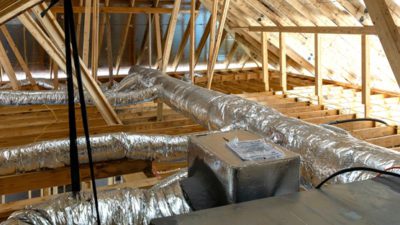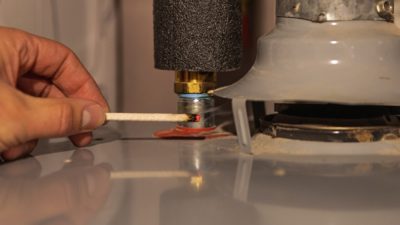The sponsors of the Mass Save® program are offering up to $10,000 in heat pump rebates to Massachusetts residents to make home energy efficiency more affordable. While heat pumps have been around for a while, the recent Mass Save rebates are making them more popular locally. This means we are getting a lot of questions about the benefits of heat pumps and how they work.
We caught up with one of our very own HomeWorks Energy employees, Nora, to get answers to questions we are hearing every day about energy-efficient heat pumps.
What do you do at HomeWorks Energy?
I am a Home Energy Specialist Manager and I also am the Income Eligible Program Manager. This means that I manage Home Energy Specialists and Heating and Cooling Specialists in the field for our low-income program. I also develop continuing education literature for our Home Energy Specialists, to ensure that we are all staying on top of new innovations and trends within the realm of building science. I have been working at HomeWorks Energy for almost 4 years.
How does a heat pump work?
Unlike fossil fuel systems that create heat by burning fuel, a heat pump uses heat that already exists and moves it from one area to another. In the case of air conditioning, a heat pump pulls heat from your warm house and transfers it outdoors, cooling down your home in the process. In the winter, a heat pump pulls heat from outside and transfers it indoors.
There’s heat outdoors during the winter?
While you may not think that a cold winter day would have any outdoor heat to transfer inside, the refrigerant inside the heat pump makes this possible.
How well does a heat pump work when it’s cold?
Heat pumps work very well in a cold climate like we have here in New England because of the refrigerant I just mentioned. A heat pump contains a refrigerant that is so cold it boils at -50 degrees, so even during the coldest winters, the air outside is almost always warmer than the refrigerant. As long as the outdoor air stays above the refrigerant’s boiling point, you will be able to heat your home.
Heat pumps have been around for a while. What’s new about them?
Yes, they have! Heat pumps were invented back in the 1970s but have only been widely used in Europe and Asia. They are now becoming popular in the American market and they’ve really come a long way in the past 10 years. One example is the different motor used to compress or expand the refrigerant. This allows a heat pump to match a homeowner’s heating or cooling needs. Back in the 1980s, all heat pumps had one gear, but now they have hundreds.
Are heat pumps more energy-efficient than other traditional heating and cooling systems?
Heat pumps are much more efficient than even the most efficient oil and gas systems. Natural gas heating systems can only get up to 98% efficient and oil can only heat a home at 88% efficiency. Heat pumps, however, can be up to 300% efficient.
How is it possible to get an energy-efficiency rating above 100%?
Great question! That is because we get more energy out of a heat pump system than we initially put in. This is possible because we are using energy to move heat from one location to another rather than using energy to produce heat.
Can homeowners save money with a heat pump?
Many Massachusetts residents save money by switching to heat pumps. Those that will see significant changes in their energy costs will be residents who currently heat with oil, propane, or baseboard electric strips. Residents who heat with gas could see a similar cost to heat their home. However, there is an expectation based on current market research that as resources diminish, the cost of natural gas will increase in comparison to electric costs.
What are the benefits for the environment?
Electricity is one of the only sources of energy that has the potential to be produced 100% from renewable energy sources. By switching the majority of our heating systems to electric and moving away from oil and natural gas, we can all help reduce negative environmental impacts that are the result of burning fossil fuels.
Are there health benefits?
Switching to electric as your heating source could eliminate potential safety hazards that come with burning oil, propane, or natural gas in your basement. Aside from eliminating safety risks and improving indoor air quality in the home, heat pumps naturally dehumidify the air, which helps to reduce the risk of moisture and mildew issues within the home. We’ve also seen a lot of interest in heat pumps recently because, unlike a lot of other heating systems, heat pumps are also compatible with many different add-on options that help to kill germs and viruses in the air.
How does a heat pump double as a cooling system?
Heat pumps double as cooling systems because in the summer, the system switches the cycle’s flow using what’s called a “reversal valve.” This valve allows us to reverse the flow of refrigerant so that it pulls heat from the indoor air and expels it into the outdoor air.
What type of home is a good candidate for a heat pump?
Really anyone could be a good candidate for heat pumps, but we get the most interest from residents who want to eliminate their fossil fuel costs and reduce their carbon footprint. We also see a lot of interest from people who want to increase the comfort of their home by adding AC without having to install central ductwork or adding additional heat sources in their home. You can add an indoor unit in many spaces much more easily than adding an extra baseboard or furnace duct. This works really well for finished attics or three season rooms where people want to add heat, especially as many people are converting these rooms to home offices recently. Residents who have ways to offset their electricity costs, lik solar panels, are usually especially interested in the program, as they are able to heat and cool their home and offset a lot of that cost by producing their own electricity.
If I’m interested in getting a heat pump, how do I get started?
In order to start the process of getting a heat pump installed, you should first have a Mass Save Home Energy Assessment to see what rebates and financing options you qualify for because every house is different. Having a licensed professional out to evaluate your home for energy efficiency is essential to understanding your options.
What is a Mass Save Home Energy Assessment?
A Home Energy Assessment is a comprehensive evaluation of your home’s efficiency. During a Home Energy Assessment, we test your existing heating system for safety and efficiency, evaluate the existing insulation levels in your home, and provide you with no-cost energy-efficient items, like programmable thermostats and water saving showerheads. At the end, we produce a summary report of our findings that includes our energy efficiency recommendations and an explanation of any incentives that are offered through the program.
What types of Mass Save incentives are offered?
Besides the no-cost items I mentioned, you can get 100% off air sealing, 75-100% off insulation, 0% financing, and up to $10,000 in heat pump rebates.
Can you tell me more about the incentives available for heat pumps?
Every home is different, but the sponsors of the Mass Save program offer up to $10,000 in rebates for those looking to switch to heat pumps as their main heating source. Even if you don’t want to switch your whole home over to heat pumps, there are smaller rebates available for supplemental heat pump systems. Additionally, you could finance a heat pump project at 0% interest (up to $25,000) using the Mass Save HEAT Loan, which is offered in 3, 5, and 7 year options. Some income-based programs offer even more rebates beyond $10,000, which is why we recommend starting with a Home Energy Assessment. That way a certified Home Energy Specialist can help you navigate the incentives.
What is the cost of a Home Energy Assessment?
Home Energy Assessments are offered at no-cost by the sponsors of the Mass Save program. The Mass Save program is a partnership between the state and the utility companies, and it’s funded through a charge on your monthly energy bill. Therefore, participation in a home energy assessment is no additional cost to you.
How do I sign up for a Home Energy Assessment?
If anyone is interested in signing up for a Home Energy Assessment, they can call (781) 305-3319 or click here to schedule online. If you’ve already had an assessment within the last 3 years, you still qualify for the benefits!
Interested in learning more about home energy efficiency or heat pumps? Visit our HomeWorks Energy blog here for more tips, articles, and industry news.





